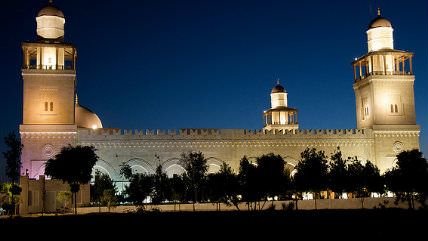Obama Keeps Bowing in the Middle East
Why does every administration go out of its way to avoid insulting these illiberal dictatorships?

At the World Economic Forum last week, Secretary of State John Kerry argued that though extremists may cite Islam as a justification for terrorism, the world should refrain from using the term "Islamic radicals." Extremism, Kerry maintained, is apart from Islam, and the millions who support or engage in violence in its name are driven by "criminal conduct rooted in alienation, poverty, thrill seeking and other factors."
This soothing, half-baked philosophy is cant in the Obama administration. So when the Islamic State group took credit for the beheading of Japanese hostage Haruna Yukawa, it shouldn't have been surprising that the most important thing Rick Stengel, undersecretary of state for happy thoughts, could think to tweet to his followers was that there was "nothing religious about it."
We've gone from incessantly offering (appropriate) distinctions among factions of Islam to fantasizing that terrorists are a bunch of shiftless, underprivileged adrenaline junkies with no particular philosophy at all. Religion is an organized collection of beliefs that makes sense of existence. Under no definition of "faith" is there a stipulation that it must be devoid of any violence. And whether or not violence used in Islam is a distortion of the faith is for people of that religion to work out for themselves.
If the administration is interested in seeing how this works, we don't have to look further than our good allies in Saudi Arabia, where the national flag features an inscription of an Islamic creed—"There is no god but God; Muhammad is the messenger of God"—which is neatly underlined by a sword. This, I think it's fair to say, may insinuate that a coupling of violence and faith is indeed possible in modern religion.
Perhaps Barack Obama can ask King Salman, the new leader of Saudi Arabia, when he pays his respects (an honor the victims in Paris did not receive) what the deal is. He could ask whether women being thrown into the streets for public beheadings has anything to do with religion and violence. The Saudi government, after all, has defended the recent decapitation of a Burmese woman (caught on video) as compulsory to "implement the rulings of God." It's the ninth such execution this year. (All these beheadings sure are a weird coincidence, no?) Perhaps Saudi monarchs are driven by alienation and poverty when they are induced to flog writers who insult them. And perhaps Kerry has a better grasp of Islamic law than the Wahhabi sect running the religious police force in the Kingdom of Saudi Arabia, the birthplace of Islam. I imagine he thinks he does.
I don't propose invading the Arabian Peninsula—or anywhere else, for that matter. But George W. Bush, another House of Saud coddler, used to claim that the U.S. fight in the Middle East was about promoting democracy. Obama has talked about how important it is for our diplomacy to mirror our values. In reality, of course, friendly autocrats help us fight stateless Islamic extremism and offer stability. The late King Abdullah and his successor have also acted as a counterbalance to Iran—a precarious situation we helped establish.
So everyone understands why we ignore the fact that King Abdullah's Saudi Arabia became the world's largest source of funds for Salafist jihad and the fact that religious state institutions are the leading voices perpetuating that jihad. Obama will pay his respects to the government in a nation that has no real elections, political parties, or dissent. We ignore that, too.
But surely, there is some kernel of moral duty among American leaders to promote liberal values around the world. Juxtapose how this administration treats allies with how the president admonishes and undermines an elected leader he doesn't particularly care for and, at the same time, reveres and celebrates the life of a dictator. The president said that King Abdullah—who had "about" 30 wives and fathered "about" 35 children, according to sources—was a "candid" leader who "had the courage of his convictions," including "his steadfast and passionate belief in the importance of the U.S.-Saudi relationship as a force for stability and security in the Middle East."
While this administration is having a meltdown over the fact that Israeli Prime Minister Benjamin Netanyahu will be speaking to Congress about the threat of Iranian nuclear ambitions, the chairman of the Joint Chiefs of Staff is sponsoring an essay competition in the United States to honor the former Saudi king. Marine Corps Maj. Gen. Frederick M. Padilla, president of the National Defense University, wants to use the opportunity to challenge future students while honoring the late king. "This scholarly research competition presents NDU students with a unique opportunity to focus their research and writing efforts on relevant issues at the intersection of U.S. security interests and the Arab-Muslim world," Padilla said.
It's fair to say that every administration has gone out of its way to avoid insulting these immoral dictatorships. It's just that so few have been as consistent and obsequious as this one.


Show Comments (4)